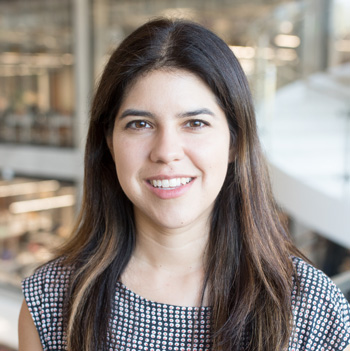The dynamic properties of the natural extracellular matrix (ECM) allows for a continuous exchange of information with resident cells that changes over time. In addition, the dynamic properties of ECM polymers provide mechanical stress relaxation, thereby protecting and enhancing cell function. Despite the importance of matrix dynamics, nearly all commercially available cell culture platforms are static in nature or have limited control over viscoelasticity. Within this context, we developed a poly(ethylene glycol) (PEG) hydrogel platform using a fast reversible thia-conjugate addition crosslinking chemistry to impart viscoelastic properties at physiologic conditions.

By controlling the aromatic substituents on a benzalcyanoacetamide, we demonstrate that we can preferentially control the forward reaction kinetics, which contributes to the overall modulus of the hydrogel. Importantly, we can perform these manipulations with minimal effect on the reverse reaction rate kinetics, thereby holding the stress relaxation properties of the hydrogel relatively constant. Compared to other dynamic covalent chemistries, we showed these crosslinkers are very fast at physiologic conditions, and that the kinetics of bond exchange are further tuned over several orders of magnitude with pH.
Finally, our data indicate good cytocompatibility with encapsulated fibroblasts and human mesenchymal stem cells, which promise suitability for cellular applications such as injectable cell delivery vehicles to localize delivery of therapeutics to a specific site. Overall, these data suggest a route to decoupling forward and reverse reaction rate kinetics in dynamic covalent PEG hydrogels, thereby expanding the toolbox for viscoelastic ECM mimics.
Adrianne Rosales is an Assistant Professor of Chemical Engineering at the University of Texas at Austin. She received her B.S. in Chemical Engineering from UT Austin and obtained her Ph.D. in Chemical Engineering from UC-Berkeley. After completing her Ph.D. in 2013, she trained at the University of Colorado Boulder as an NIH NRSA post-doctoral fellow. Adrianne’s group at UT Austin focuses on the development of bioinspired polymeric materials to model cellular microenvironments and engineer therapeutic technologies. This work has received emerging investigator recognitions from the Burroughs Wellcome Fund, the NIH, the NSF, the American Chemical Society Polymeric Materials: Science and Engineering Division, and the journals Biomaterials Science and Journal of Materials Chemistry B.